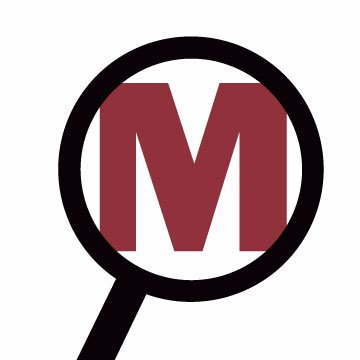PROGRAMS & TOOLS
PREVENTION
PROGRAMMING MATRIX
Media Aware
This online program is unique because it addresses a wide range of topics related to healthy sexuality, including: dispelling rape myths, safe use of alcohol, consent, contraception, STI prevention, and healthy relationships. Through a series of lessons, quizzes and videos, the program relies on social norms theory to promote sexual health and develop critical thinking skills through media literacy education (MLE).

| Program Name | Level of Evidence | Format | Target Audience | Special Features |
|---|---|---|---|---|
|
Media Aware
|
Supported By Evidence |
|
|
Program was tested for efficacy with community college students. |
Learning Objectives
By the end of the program students will demonstrate:
- An increase in sexual health knowledge
- A reduction in risky sexual behaviors and intentions
- Healthier attitudes, norms, and beliefs related to sexual health
- Stronger logical processing skills for evaluating media messages
Methods
Media Aware relies on popular media to analyze norms around sexuality. The online module uses reality TV clips, pop music songs and other media sources to explore themes related to drug and alcohol use, health relationships, and health sexuality. Videos show racially diverse teenagers reacting to this media, and prompts participants (through quizzes and other activities) to consider their views on whether or not the clips reflect their reality.
A Second Edition of this program will be available soon. The new edition includes a review of previous content for inclusivity, additional content related to gender identity, updated media examples, discussion of pornography, and additional critical thinking questions about media. The menu system was updated to make it easier to navigate through the lessons and enhance Section 508 compliance.
Dosage
Media Aware contains 5-modules. It can take up to 2 hours to complete the entire program.
Logistics
It is self-administered, multimedia, web-based program for computer and mobile Internet browsers that is interactive.
Population Served
Media Aware has been designed for older adolescents (ages 18-19) and young adults. The recently published RCT tested the program on community college students.
Theoretical Basis For Approach
Media Aware is different from traditional sexual health education programming because emphasis is placed on becoming aware of a less conscience influence on sexual behavior choices (i.e., media messages) and developing critical thinking skills to analyze and evaluate media messaging. The Message Interpretation Process (MIP) model 1 offers a framework for understanding how logical and emotional processing pathways contribute to whether a media message is internalized and influential in affecting decision-making. Following this model, media literacy education (MLE) programs have been developed to strengthen logical processing skills and encourage the critical evaluation of media messages with the goal of reducing the influence of unhealthy media messages related to sex and relationships. MLE has been shown to improve media message processing skills, as well as decrease perceived norms related to other unhealthy behaviors. Previous research has demonstrated the short-term effects of MLE programs on early adolescents’ sexual risk behavior intentions and antecedents.
Program Effectiveness
A randomized controlled trial (RCT) design was used to evaluate the effectiveness of the Media Aware program for community college students. Community college students who used the Media Aware program: were less likely to report risky sexual behaviors, showed an improvement in knowledge, attitudes, beliefs and behavioral intentions related to sexual health, and reported increased media skepticism.
CONSIDERATIONS FOR ADMINIsTRATORS
This is one of few programs that is targeted towards community college students and has a strong evidence base to support its efficacy for that population. Though the program my not be an obvious choice from a Clery and Title IX compliance angle, it is invaluable because of its comprehensive approach to adolescent sexual health, and may help your institution meet other grant-related objectives related to STI prevention and teen pregnancy.
HOW TO ACCESS THIS PROGRAM
Cost depends on number of users and length of agreement. Visit http://mediaawarecollegeprograms.com/ to learn more.
Sources
Austin, E.W., Johnson, K.K. (1997). Immediate and delayed effects of media literacy training on third graders’ decision making for alcohol. Health Communications. 9(4):323-349. doi:10.1207/s15327027hc0904_3
Kupersmidt, J.B., Scull, T.M., Benson, J.W. (2012, February). Improving media message interpretation processing skills to promote healthy decision making about substance use: The effects of the middle school Media Ready curriculum. Journal of Health Communication Int Perspect.1-18. doi:10.1080/10810730.2011.635769
Pinkleton, B.E., Austin, E.W., Cohen, M., Miller, A., Fitzgerald, E. (2007) A statewide evaluation of the effectiveness of media literacy training to prevent tobacco use among adolescents. Journal of Health Communications. 21(1): 23-34. doi:10.1080/10410230701283306
Scull, T.M., Malik, C.V., Kupersmidt, J.B. (2014). A media literacy education approach to teaching adolescents comprehensive sexual health education. Journal of Media Literacy Education. 6(1):1-14. Retrieved from: https://www.ncbi.nlm.nih.gov/pmc/articles/PMC4828968/
Scull, T.M., Kupersmidt, B.J., Malik, C.V., & Keefe, E.M. (2017, September 12). Examining the efficacy of an mHealth media literacy education program for sexual health promotion in older adolescents attending community college. Journal of American College Health. doi:10.1080/07448481.2017.1393822
Pinkleton, B.E., Austin, E.W., Chen, Y.C., Cohen, M. (2012). The role of media literacy in shaping adolescents’ understanding of and responses to sexual portrayals in mass media. Journal of Health Communications. 17: 460-476. doi: 10.1080/10810730.2011.635770
Pinkleton, B.E., Austin, E.W., Cohen, M., Chen, Y.Y., Fitzgerald, E. (2008). Effects of a peer-led media literacy curriculum on adolescents’ knowledge and attitudes toward sexual behavior and media portrayals of sex. Health Communications. 23: 462-472. doi:10.1080/10410230802342135
